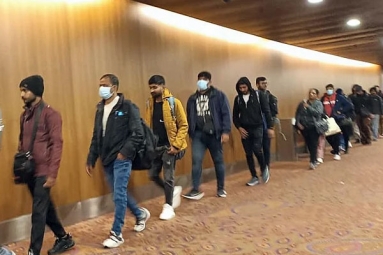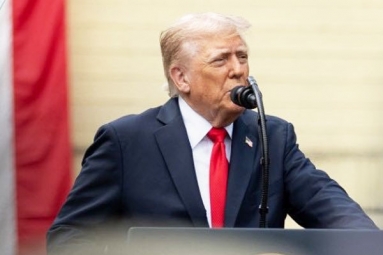
(Image source from: Bloomberg)
The US Department of Homeland Security has shared a temporary rule that will stop migrant workers from getting automatic extensions for their Employment Authorization Documents (EAD). This change is expected to affect many foreign workers, particularly a large number of Indians in the expatriate workforce. In a statement made on Wednesday, the Department noted, "Foreigners who submit their EAD renewal applications on or after October 30, 2025 (Thursday), will no longer automatically get an extension for their EAD." This indicates that any EAD extensions granted before October 30 will remain unchanged. According to the Trump administration, the new rule will lead to enhanced "background checks and reviews to ensure public safety and national security." This updated approach replaces the Biden administration's policy, which allowed immigrants to work in the US for 540 days after their work permit expired, as long as:
The renewal application was submitted on time
The EAD category allowed for an automatic extension
The current EAD category coincided with the "Eligibility Category" or "Class Requested" mentioned in the receipt notice.
The US Department of Homeland Security's statement noted, "There are some limited exceptions to this rule, including extensions granted by law or Federal Register notices related to TPS employment documents." The US government believes that this rule means more frequent background checks for migrant workers, which it hopes will help US Citizenship and Immigration Services (USCIS) "prevent fraud and identify those with possibly harmful motives." USCIS Director Joseph Edlow referred to this as a "common sense" action, asserting that working in the US should be viewed as a "privilege, not a right." USCIS advised that immigrants should apply to renew their EADs on time, ideally filing a renewal application up to 180 days before it expires. "The longer an individual delays filing for an EAD renewal, the greater the chance they risk a temporary break in their work authorization or documentation," the statement explained.
An EAD (Form I-766/EAD) serves as proof that a person is allowed to work in the US for a certain period. Permanent residents do not need an EAD. Holding a Green Card (Form I-551, Permanent Resident Card) is sufficient evidence of employment authorization. People who have non-immigrant statuses (like H-1B, L-1B, O, or P visas) also do not require this document. Earlier in September, the Trump administration raised the H-1B visa fee to $100,000 (over Rs 88 lakh) to ensure that only very skilled individuals are brought into the country without replacing American workers. "We require workers. We require skilled workers, and this essentially guarantees that this will occur," he stated. The $100,000 fee does not apply to people already in the US who are merely changing their visa type, such as students moving from an F-1 visa to an H-1B.
In another significant action, Florida Governor Ron DeSantis directed universities nationwide on Wednesday to prioritize hiring Americans for university jobs and stop the practice of bringing in foreign workers.







